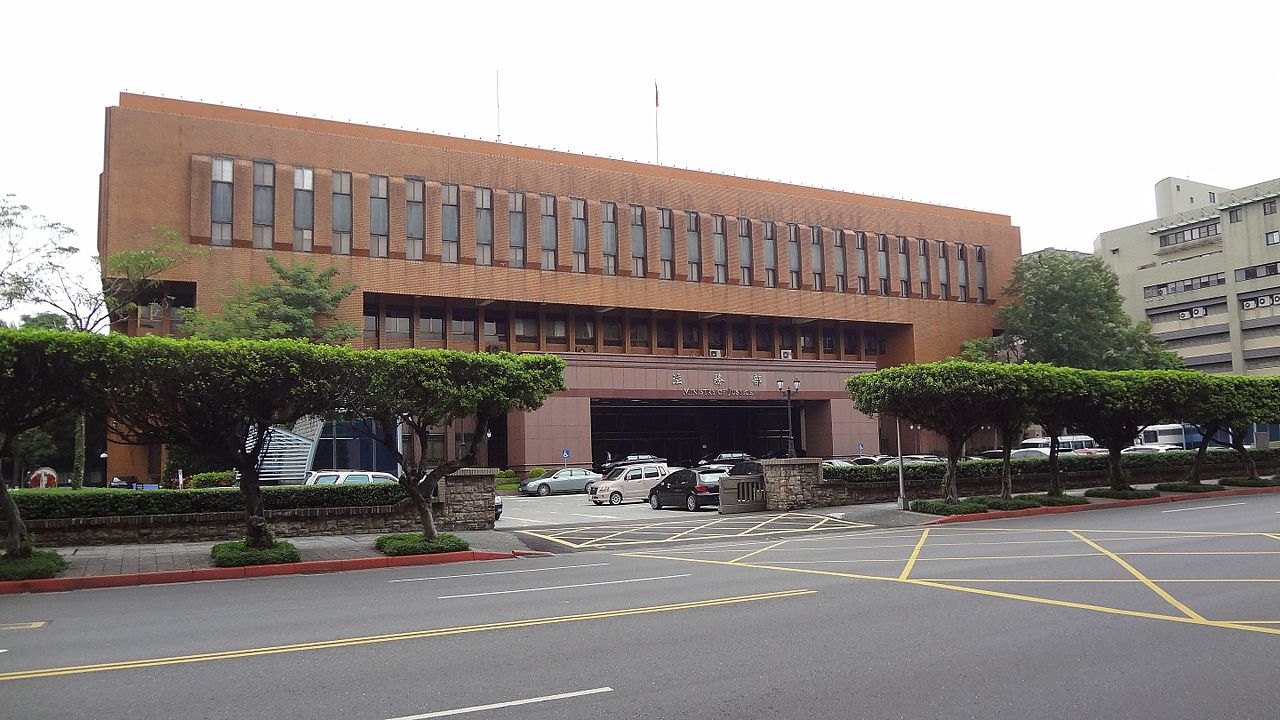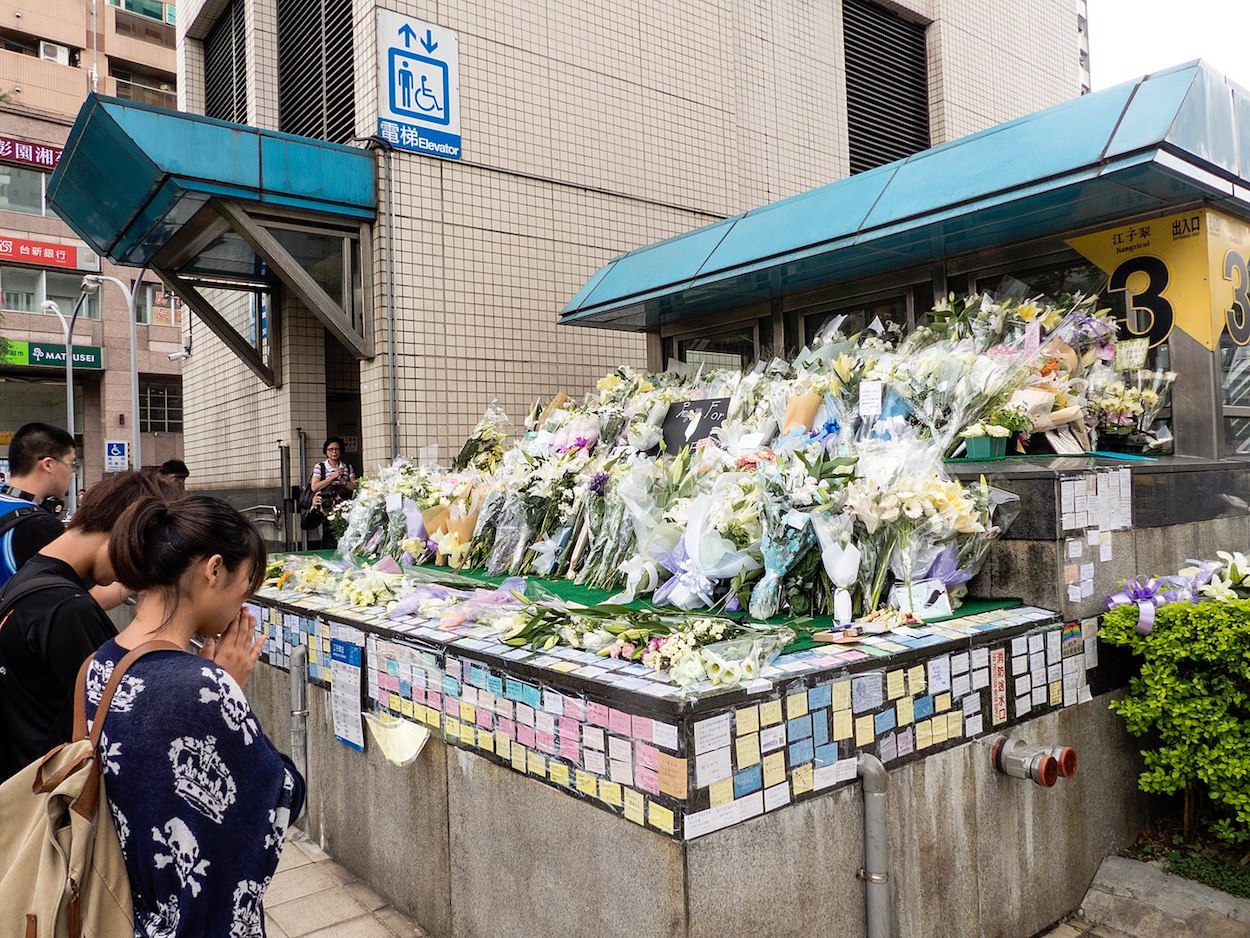by Brian Hioe
語言:
English
Photo Credit: Tsai Ing-wen/Facebook
TAIWANESE HUMAN rights groups have been critical of the Tsai administration after it executed Weng Jen-hsien, 53, by firing squad on April 1st. This would be the second execution that has taken place under the Tsai administration to date. 39 individuals are currently on death row in Taiwan.
Weng was on death row because of a February 2016 arson, in which Weng set fire to his parents’ home during the Lunar New Year, killing five. The fire killed Weng’s parents, two cousins, his cousin’s wife, and a caretaker working in the Weng family home. Five were injured but survived.
Weng was previously known to have difficulties maintaining employment due to his poor temper, having worked fourteen jobs after graduating. Weng worked in a number of industries including construction, printing, electronics factories, chemical factories, and textile mills. Weng also attempted several times to set up business ventures, but these failed.
 Ministry of Justice. Photo credit: Solomon203/WikiCommons/CC
Ministry of Justice. Photo credit: Solomon203/WikiCommons/CC
Weng’s business failure led him to return home to work on the family farm. However, Weng is thought to have held a grudge against his family for being made to work there, taking the view that he was burdened with a disproportionate amount of work. Weng is reported to have been jealous of his siblings’ accomplishments relative to him. The appraisal of Weng’s mental health conducted during the trial suggested that Weng may suffer from a mental illness and that he was somewhere on the Autism spectrum.
Human rights groups that condemned Weng’s execution include Amnesty International, the Taiwan Association for Human Rights, the Taiwan Alliance to End the Death Penalty, and the International Federation for Human Rights. The European External Action Service also issued a condemnation of the execution on behalf of the European Union.
The death penalty is believed to be highly popular in Taiwan, with political administrations frequently accused of using the death penalty as a means to shore up popular support. This has occurred with both KMT and DPP administrations.
Under the previous KMT Ma administration, a series of executions were carried out in the wake of the Sunflower Movement. This was believed to be a response to the fact that the sharp decline in the approval ratings of the Ma administration in the wake of the Sunflower Movement, which involved the month-long occupation of the Taiwanese legislature in protest of a free trade agreement that the Ma administration hoped to pass with China.
Likewise, the Ma administration executed Cheng Chieh, who committed a stabbing on the Taipei MRT in 2014 that left four dead in an incident highly shocking of Taiwanese society, on its way out of office in 2016.
In late 2018, a series of dismemberment incidents led to the accusation that the Tsai administration was weak on crime in its reluctance to use executions as a deterrent. As a result, the Tsai administration was accused of using the death penalty during its first execution in September 2018 as a way to shore up support before November 2018 elections. Notably, the executed individual, Lee Hung-chi, carried out a series of murders in 2014 similar to the more recent dismemberments, and he was very likely chosen because the crimes he committed resembled the dismemberments.
 Memorial for victims of the 2014 Taipei MRT stabbing incident. Photo credit: 玄史生/WikiCommons/CC
Memorial for victims of the 2014 Taipei MRT stabbing incident. Photo credit: 玄史生/WikiCommons/CC
With its second execution, the Tsai administration is accused of attempting to shore up public confidence in the administration during the COVID-19 coronavirus pandemic. The Tsai administration was accused by Chiu E-ling, the general-secretary of Amnesty International Taiwan, of attempting to distract from the announcement that Taiwan would be donating ten million medical masks to other countries through the execution. While Taiwan currently produces over 13 million medical masks daily and Taiwan only has had five deaths due to COVID-19, news of the donation has caused some backlash against the Tsai administration because daily lines to obtain medical masks are still long in many parts of Taiwan.
Despite the execution, the Taiwanese Ministry of Justice claims that the official stance of the government is that it still hopes to gradually phase out the use of the death penalty. That being said, comments by Premier Su Tseng-chang in October last year were understood as suggesting that the government would continue to use capital punishment. In March 2019, Su also approved the use of the death penalty for crimes such as drunk driving.
As such, while human rights groups are likely to continue to call for an end to the use of capital punishment in Taiwan, it may be some time yet before one sees action from the Taiwanese government. Capital punishment proves too politically expedient a tool for the Taiwanese government at present and without any corresponding willpower to push for an end to capital punishment from the Taiwanese public, one is unlikely to see action on the issue.

